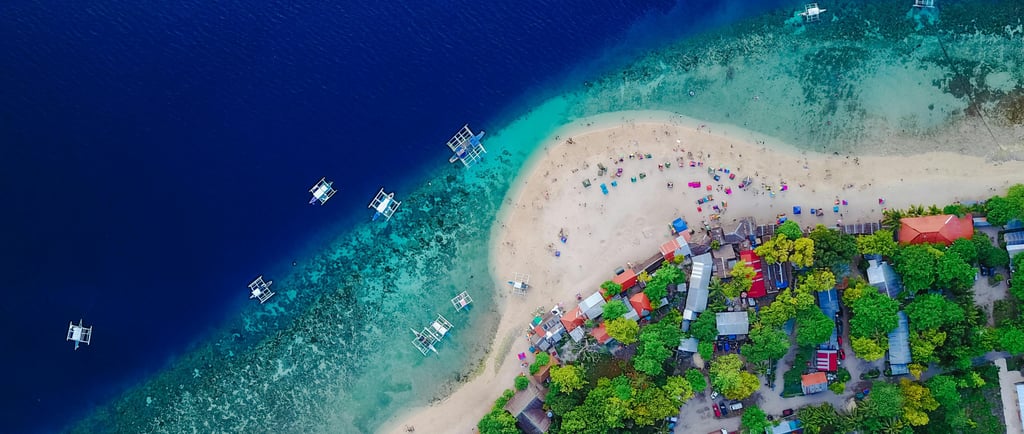
Travel Trends in 2025: Redefining the Way We Explore the World
Joshua Alcantara
8/1/20254 min read


How Shifting Preferences, Technology, and Sustainability Are Transforming the Future of Travel
The landscape of global travel is changing rapidly. In 2025, the travel experience is no longer just about getting from one destination to another, it's about how we get there, why we go, and what kind of impact we leave behind.
With travelers becoming more conscious, tech-savvy, and experience-driven, the future of tourism looks different than it did even a few years ago. Industry experts predict that 2025 will be a year marked by personalization, sustainability, and a deep desire for meaningful connection.
Let’s take a closer look at the top travel trends shaping journeys around the world in 2025 and what it means for travelers, tourism businesses, and destinations alike.
1. Purpose-Driven Travel is In, Passive Tourism is Out
In 2025, travel isn’t just about leisure it’s about intention. More travelers are seeking purposeful experiences, whether that means volunteering abroad, learning from indigenous communities, or contributing to conservation efforts.
This rise in “travel with impact” reflects a broader shift in consumer values. People are choosing trips that align with personal goals, social causes, or environmental values, signaling an end to generic, one-size-fits-all itineraries.
2. Personalization is the New Standard
Thanks to AI and big data, personalization is no longer a luxury it’s an expectation. Travelers now expect curated recommendations, dynamic pricing, real-time updates, and even predictive suggestions based on past behavior and preferences.
Platforms that offer hyper-personalized travel planning tools are outperforming traditional agencies. Whether it’s a solo female traveler getting tailored safety alerts or a digital nomad receiving coworking-friendly accommodation suggestions, the user experience is now entirely traveler-centric.
3. Slow Travel Makes a Big Comeback
Fast getaways and bucket-list binges are being replaced by slow, immersive travel. Instead of rushing through five countries in a week, travelers in 2025 are choosing to stay longer in one place, get to know the locals, learn the language, and embrace the rhythm of everyday life.
This trend is fueled by remote work flexibility, the rise of digital nomad visas, and the growing desire for authenticity. It’s not just where you go it’s how deeply you connect while you’re there.
4. Technology Is Seamlessly Integrated
Technology has become an invisible companion on every trip. From biometric boarding and contactless hotel check-ins to AI-driven travel assistants, tech is simplifying every stage of the journey.
In 2025, expect even smarter use of wearable tech, real-time translation tools, AR-enhanced walking tours, and sustainability trackers that show your trip’s carbon footprint. The goal: more convenience, less friction, and richer experiences.
5. Regenerative and Sustainable Travel Gains Ground
It’s no longer enough to travel sustainably. In 2025, travelers want to leave places better than they found them. This has given rise to regenerative tourism an approach that not only minimizes harm but actively restores ecosystems and uplifts local communities.
Eco-lodges, farm stays, and nature-immersive retreats are seeing higher demand. Travelers are also supporting local artisans, avoiding over-touristed areas, and choosing low-impact transportation whenever possible.
6. Off-the-Beaten-Path Destinations Are Thriving
Popular cities like Paris and Tokyo will always attract crowds, but in 2025, a growing number of travelers are veering off the tourist trail. Think rural villages in Eastern Europe, cultural hubs in Southeast Asia, or coastal hideaways in South America.
Social media fatigue and a desire for authenticity are driving this shift. Destinations that offer unique, crowd-free, and story-rich experiences will be the winners in the years ahead.
7. Work and Travel: The Rise of Flexcations
The work-from-anywhere movement continues to fuel what’s now called a “flexcation” a blend of vacation and remote work. With better global internet infrastructure and more relaxed visa policies, professionals are turning weeks-long trips into months-long stays.
Hotels and resorts are adapting with dedicated coworking spaces, extended-stay discounts, and wellness programs designed for remote professionals. It’s a lifestyle evolution and it’s here to stay.
8. Wellness and Mental Health Travel are Front and Center
After years of uncertainty, travelers are placing higher value on well-being-focused trips. This includes everything from silent meditation retreats and forest bathing to sleep-centric resorts and digital detox getaways.
Mental health is now a key motivator for travel, especially among Gen Z and Millennials. Destinations that prioritize serenity, nature, and balance are becoming go-to choices for those looking to recharge.
9. Intergenerational and “Found Family” Travel
Family travel is evolving too. It’s not just parents and kids anymore 2025 sees a rise in multi-generational and chosen family travel. Groups of friends, couples with aging parents, and blended families are traveling together, creating new bonding moments across age groups.
Tour operators and resorts are adapting by offering flexible itineraries, larger accommodations, and activities that cater to all generations in one experience.
10. Local Experiences Over Luxury
Luxury in 2025 looks different. It’s less about 5-star formality and more about access to real, local experiences. Travelers want to cook with locals, explore hidden neighborhoods, and participate in community festivals.
The new luxury is about connection, discovery, and cultural immersion a shift that is redefining how high-end travel is marketed and delivered.
The Future of Travel is Intentional
In 2025, the way we travel is evolving and it’s for the better. More than just seeing new places, people want to travel with meaning, connect with purpose, and leave a positive mark.
For tourism providers, this means adapting to the needs of mindful, tech-savvy, and socially aware travelers. For the rest of us, it means embracing travel as not just a getaway but a way to grow, learn, and contribute.